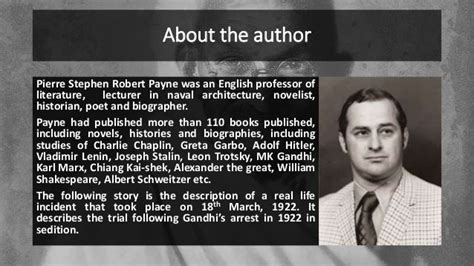Top 28 Quotes & Sayings by Robert Payne
Explore popular quotes and sayings by an English writer Robert Payne.
Last updated on April 15, 2025.
In the Middle Ages the king offered protection to his subjects in return for their loyalty, and the subjects were doubly protected, for the church also sheltered them. The need for shelter - for a father image that cares and will hopefully provide and give some meaning to human lives - remains as real as it was in the Middle Ages, but modern technocracy has no place for either the father or the church and provides no substitute.






















